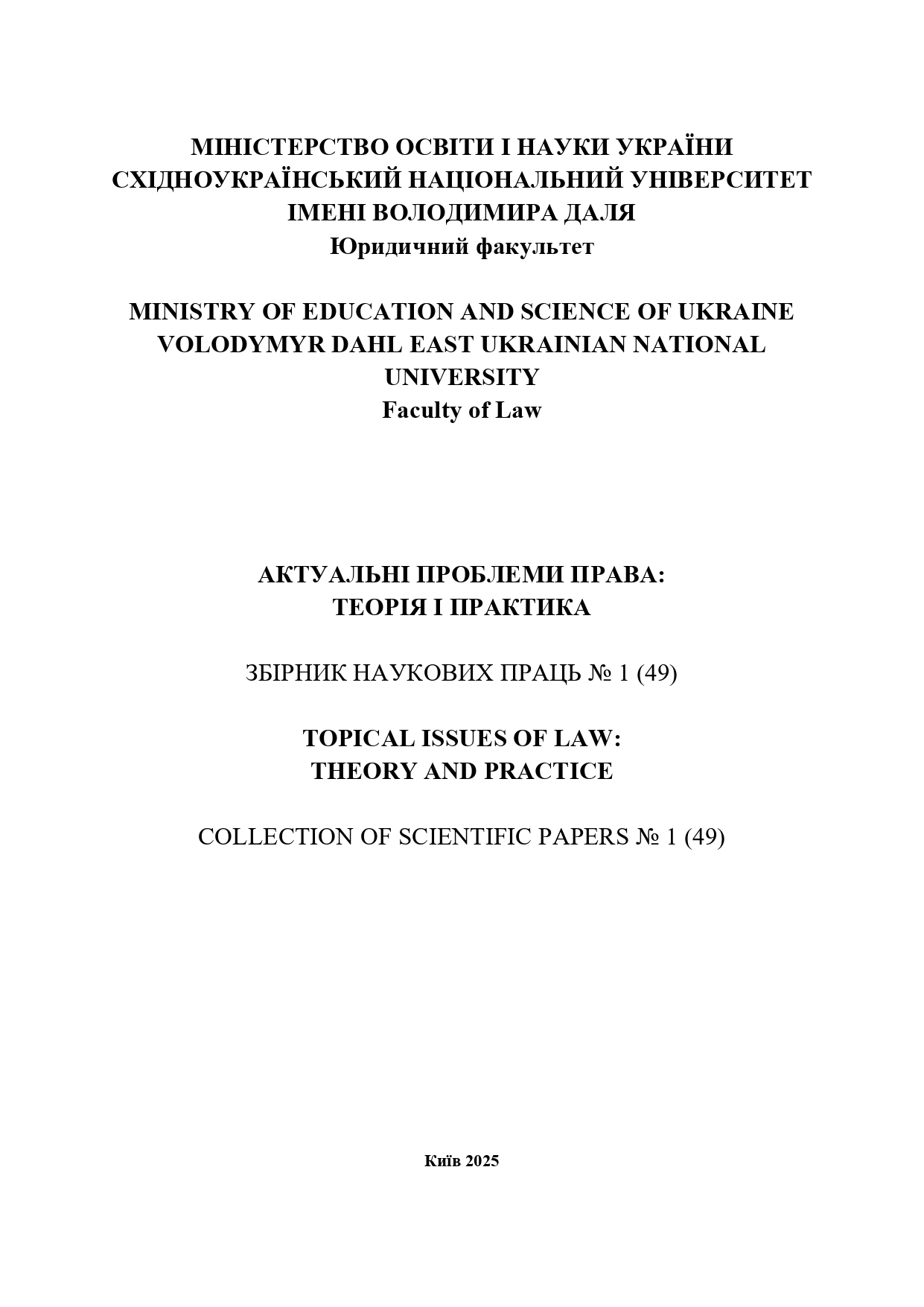CRIMINALIZATION OF STALKING – ILLEGAL PERSECUTION: ISSUES OF REFORMING UKRAINIAN LEGISLATION
DOI:
https://doi.org/10.33216/2218-5461/2025-49-1-89-104Abstract
This article is devoted to pressing issues related to the implementation of the Istanbul Convention, specifically the criminalization of illegal persecution (stalking) as a form of psychological violence. Based on a synthesis of scholars’ perspectives, analysis of
international normative-legal acts, particularly Article 34 of the Council of Europe Convention on Preventing and Combating Violence against Women and Domestic Violence, and a comparison of the criminal legislation of European states and Ukraine, the study explores the definition of the concept of “stalking” and provides a criminal-legal characterization of this phenomenon. The research indicates that stalking constitutes systematic, unwanted behavior that induces fear and anxiety in victims and assumes new forms in the digital environment due to the development of information technologies. It is noted that Ukrainian legislation lacks a clear definition of the concept of “stalking” and effective mechanisms to counter this phenomenon, leading to the impunity of offenders and insufficient protection of victims. It is established that the armed aggression of Russia against Ukraine has significantly heightened the relevance of psychological violence issues, particularly stalking, due to increased social tension and population vulnerability. The article proposes certain solutions, including amendments to the Criminal Code of Ukraine to establish liability for persecution, which would facilitate the harmonization of national legislation with international standards, and the development of preventive measures taking into account the online dimension of this phenomenon.
Keywords: criminalization, Criminal Code of Ukraine, illegal persecution, violence, psychological violence, stalking, Istanbul Convention, fear, forms of violence.

